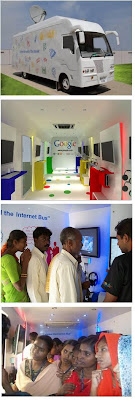(This is the second of a series of posts from YouTube's news and politics blog, Citizentube. -Ed.)Activism today isn't limited to picket lines and marches on the Mall — people have taken their movements to the web, and
YouTube has become an important platform for exposure. Every day, people use YouTube to fight for causes, whether they're hunger-striking celebrities like
Mia Farrow, or
9-year-olds trying to save the neighborhood kickball lot from destruction. On
Citizentube, our YouTube blog that chronicles the way people use video to change the world, we've seen digital activists use YouTube in three basic ways: to shine a light on issues that need more exposure, to drive action around causes they care about, and to create connections between people and organizations that share their desire to make a difference.
Some of the most compelling videos we see are those that spotlight important issues that aren't being covered in the mainstream media.
Witness, a nonprofit organization whose mission is to document human rights abuses around the world through video, offers an excellent example —
this video from their YouTube channel chronicles the clashes between the Burmese military and rural ethnic minorities.
Invisiblepeople.tv, a relative newcomer to YouTube, is taking a similar approach by tackling a more domestic issue: homelessness. This summer, the group is traveling across America to document the real, unedited stories of people living on the streets, in tent communes and in cars — and posting all of the footage to
their YouTube channel. And of course we've seen protesters in
Iran,
China and elsewhere use YouTube to amplify their causes far beyond national borders.
Other individuals and nonprofits are using YouTube as a direct advocacy tool, experimenting with ways to drive action from their videos to a particular cause. And we're building new products to make it even easier for them to do this effectively. For example, in March, we
launched a tool called "Call to Action," which allows nonprofit organizations to drive traffic from an
in-video overlay to an off-site page where they can collect donations, signatures or email addresses. Shortly after launch, to commemorate World Water Day, we featured a video from charity:water on the YouTube homepage that used a call-to-action overlay to encourage YouTube users to donate money to build wells and provide clean, safe drinking water for those who don't have it. Through YouTube,
charity:water was able to raise over $10,000 in one day — enough to build two brand-new wells in the Central African Republic and give over 150 people clean drinking water for 20 years.
Yet some of the most innovative uses of YouTube for digital activism are those that leverage the communities that exist on YouTube around particular causes. YouTube is inherently a social experience and many of our users are hungry to partner and collaborate with others who share their passions. Last December, popular YouTube users the
Vlogbrothers launched the "
Project for Awesome," a campaign which asked fellow budding change-makers to make videos about their favorite charities. Over 1,200 people joined the effort to promote their cause of choice. And just a few weeks ago, in partnership with President Obama's launch of serve.gov, we created "
Video Volunteers", a new platform on YouTube which connects nonprofits that lack video resources with proven video-makers who want to use their skills to do good. There are already hundreds of posts from nonprofits seeking help on the
Video Volunteers YouTube channel, so if you're interested in creating a video for an organization, head over to the channel now and find a cause you care about.
Activism is constantly evolving on YouTube, so we'll keep posting fresh accounts of how citizens and nonprofits are changing the world, one video at a time, on Citizentube.
Posted by Ramya Raghavan, YouTube Nonprofits & Activism



















